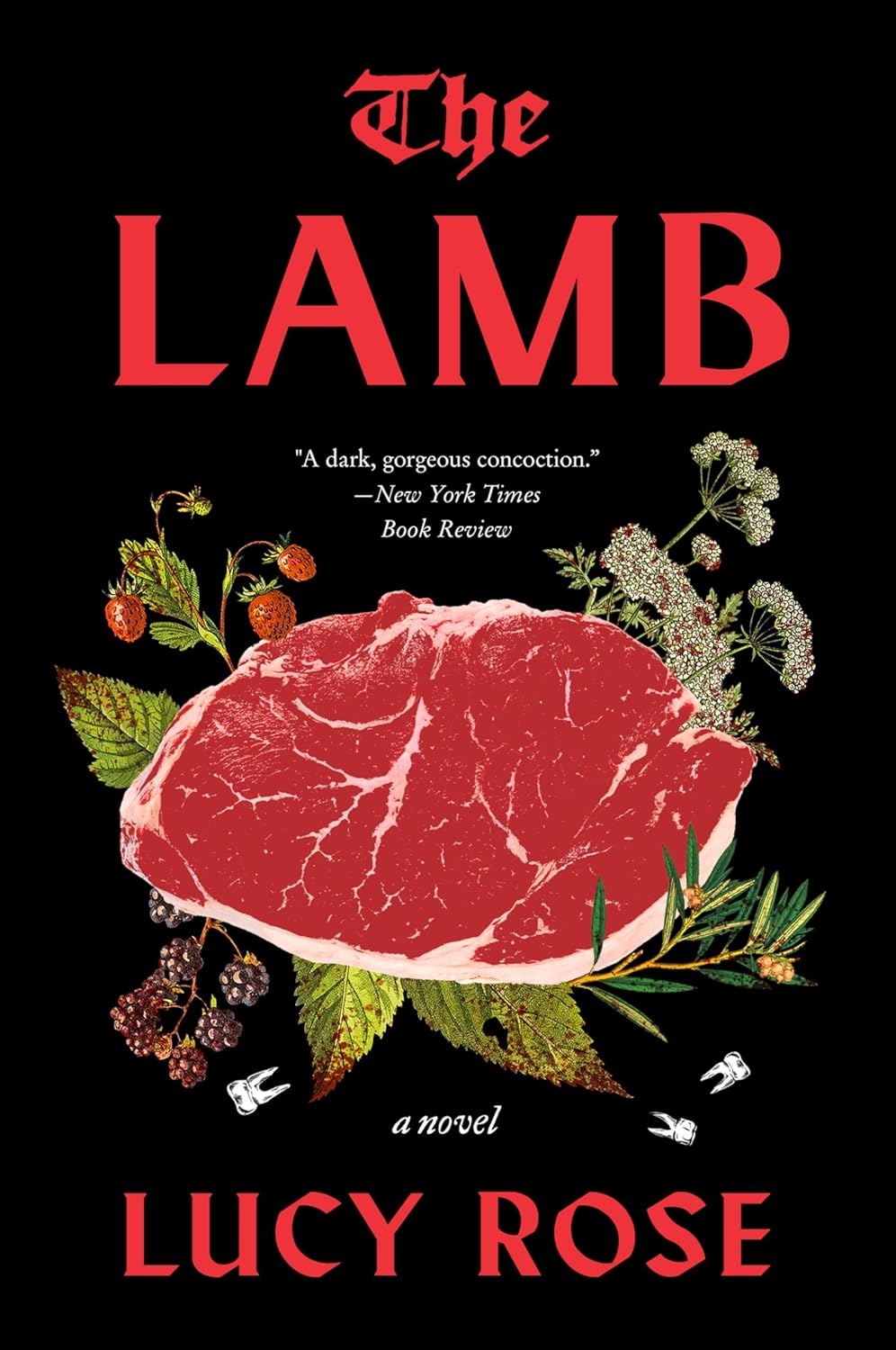Review of The Lamb by Lucy Rose

The Lamb
Lucy Rose
Harper, 2025, 336 pages
$22.39
Reviewed by Sydney Minor
Lucy Rose’s debut novel, The Lamb, blends elements of folktale, horror, and coming-of-age genres to craft a deeply original story about cannibalism and what it can metaphorically represent. The use of cannibalism as a metaphor in art and literature dates back to Greek mythology and early modern literature, but it has experienced a resurgence in recent years with works like Yellowjackets, Bones and All, Fresh, A Certain Hunger, and Tender Is the Flesh.
I approached the novel with some skepticism, concerned it might be derivative or capitalizing on a trend. Instead, I found it to be one of the most allegorically rich interpretations of this trope.
The story follows Margot, a young girl living on a homestead near the wilderness, raised in a household where cannibalism is the norm. Her mother, Mama, takes in strays—lost and wandering travelers—makes them comfortable, then kills them to use as food. When another woman, Eden, stumbles upon the homestead and embeds herself into the family, the dynamic Margot is used to begins to shift. As the story unfolds, tension builds toward an inevitable conclusion.
Both Margot and Mama grapple with inner conflicts that linger throughout the novel. Margot begins to question the morality of Mama’s actions, while also confronting her own emerging sexuality. Mama, on the other hand, struggles with her identity as a mother and the tension between that role and her personal autonomy. These internal battles are reflected in their relationships with consumption. Margot, for instance, eats a strand of her crush’s hair, hoping it will keep her close, while Mama’s relentless hunger mirrors her desire for independence and selfhood.
The novel also offers a compelling exploration of the theoretical concept of abjection. Coined by philosopher Julia Kristeva and often used in horror analysis, abjection refers to the human response of horror or disgust when faced with a breakdown in meaning—typically when social order collapses or the boundary between self and other disintegrates. These boundaries form the foundation of identity, morality, and stability, so their dissolution provokes deep psychological discomfort.
Cannibalism is perhaps the most taboo, and therefore abject, subject in horror. To make it more palatable or comprehensible, narratives often depict the cannibal as animalistic or the victim as less than human. The Lamb employs both: Mama sees her victims—the strays—as subhuman, while Margot increasingly views Mama as monstrous for her actions.
The most powerful aspect of the novel is the atmosphere and setting that Rose constructs through deliberate ambiguity. Much like a fairytale, The Lamb takes place in an unspecified time and location—an ambiguous part of England. The homestead feels otherworldly in its descriptions, yet occasional references to televisions or telephones snap the reader back to a recognizable reality. About a quarter of the book occurs at Margot’s school or during her bus rides, further grounding the story and amplifying its tragedy through contrast with the everyday world.
The novel is also highly readable. With around seventy chapters, each only three to five pages long, it’s easy to move through quickly—I finished it in about two days. While this structure may reflect a broader cultural shift toward shorter attention spans, it also builds a strong sense of momentum and looming dread as the story progresses.
The Lamb is a dark, genre-defying, and thought-provoking novel that will keep you on edge from beginning to end.
Sydney Minor (she/her) is a New York-born, London-based writer and musician currently interning with Sinister Wisdom. She recently completed her undergraduate studies at the Royal College of Music and will begin a master’s in musicology at Cambridge University this autumn, with a focus on the intersection of queer studies and twentieth-century opera. You can find more of her ramblings regarding music, art, and culture on her Substack, Salome’s Veil.
"Empowerment comes from ideas."
― Charlene Carruthers
"Your silence will not protect you."
— Tourmaline
"Gender is the poetry each of us makes out of the language we are taught."
— Leila Raven


